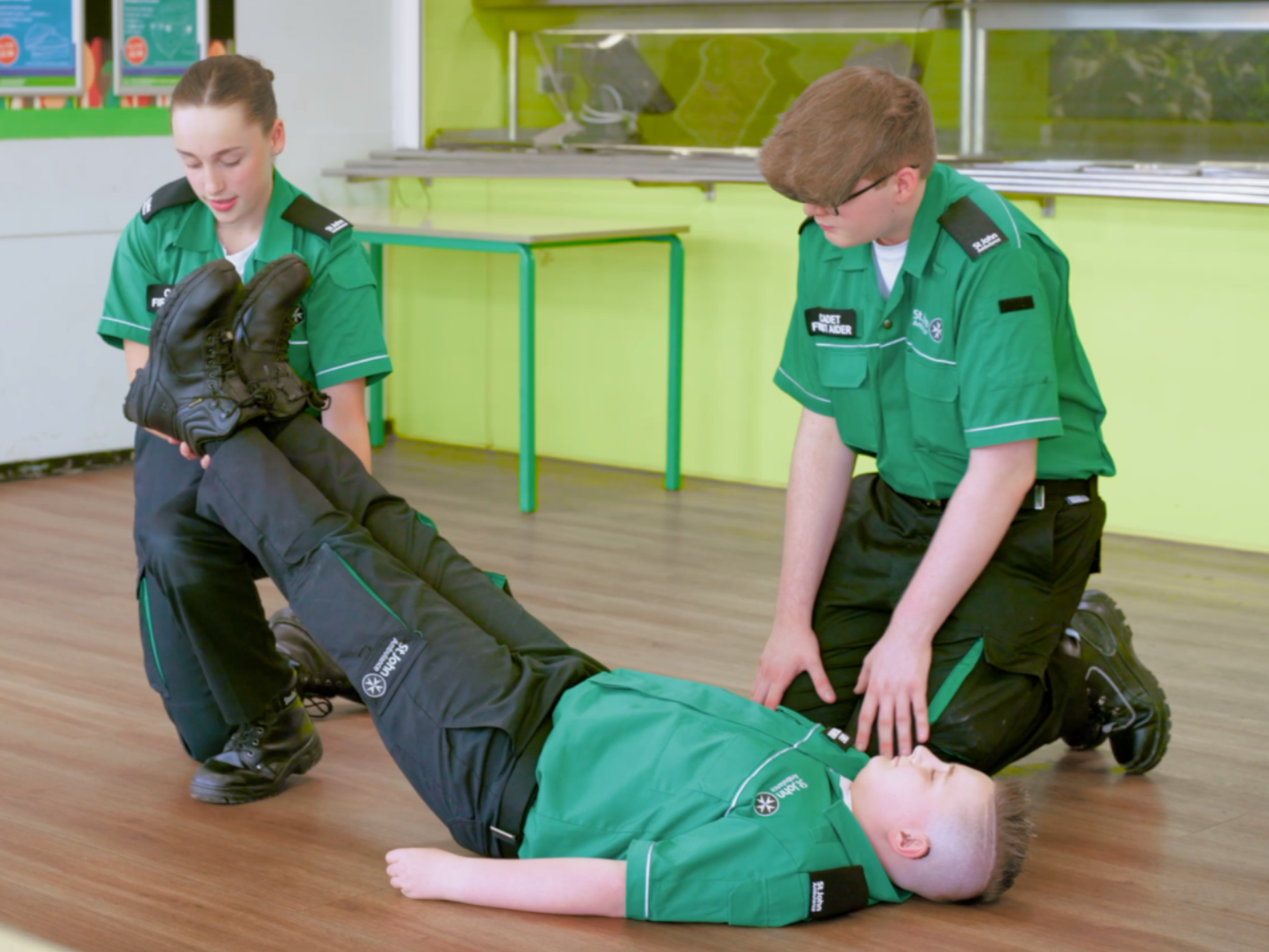Back-to-School Allergy Safety Checklist
First day at school picture essential!
Keeping Your Child Safe and Included at School
For parents of children with food allergies, preparing for the new school year can feel overwhelming, especially if it’s your child’s first day at school. Whether your child is moving up a year, starting a new school, or walking into the classroom for the very first time, a little preparation before term starts makes a big difference. With the right steps, you can help keep your child safe, confident, and fully included in school life.
That is why we’ve created a FREE School Allergy Safety Checklist designed to help you feel organised and reassured when handing your child’s allergy care over to school staff.
Here are some of the key areas to cover before your child goes back to school or starts school for the first time.
Make sure all teaching staff can recognise signs of anaphylaxis
1. School Allergy Training & Emergency Safety
Make sure all teaching staff can recognise signs of anaphylaxis and have received training in what to do in an allergy emergency.
Confirm staff know how and when to use an adrenaline auto-injector (EpiPen, Jext, or Emerade). Practice with a trainer pen where possible.
We have posters for classrooms explaining what to do in an allergy emergency - let your teacher know they can download and display.
Did you know?
Allergy School teamed up with leading first aid charity St John Ambulance to create a FREE film explaining how to respond to a food allergy emergency for teachers, schools and anyone responsible for children and young people with food allergies. Your school can sign up to Allergy School to access resources on the steps to take in the event of a food allergy emergency.
We have also created a ‘First Aid for Anaphylaxis’ poster that you can screenshot, share, or download and print. It’s perfect for giving to your child’s teacher to display in the classroom, or to keep on hand as a quick-reference resource in an emergency.
Pupils sharing what to do in an allergy emergency in class
2. Allergy Medication Management
Check your child’s medication is in date, correctly labelled, and the right dosage for their age/weight.
Confirm the storage location of your child’s allergy medication and ensure it’s easily accessible to multiple staff members and not locked or hard to get to in an allergy emergency in a cool place or out of direct sunlight.
Ask if your school holds spare adrenaline auto-injectors (AAIs) in line with UK Government guidance.
Does your child’s teacher know?
An allergic reaction can develop into anaphylaxis in minutes and should always be treated as a medical emergency. Anaphylaxis does not always present with visible symptoms such as rash, hives, or swelling. If they suspect anaphylaxis in a food-allergic pupil, act immediately and follow your child’s allergy care plan.
Every second counts.
Encourage School Staff to ask questions about your child’s allergies
3. Allergy Care, Communication & Planning
Share your child’s allergy care plan with the school and keep a copy for yourself.
Discuss allergy management during lunchtimes, breaks, school trips, after-school clubs, and when supply teachers are covering.
Encourage staff to ask questions - the more confident they feel, the safer your child will be.
Need a Hand? Explore Our Parent FAQs for Support!
Have a question or looking for more guidance? Whether you're wondering about school routines, or have a question around milk or nut policies - our parent FAQs cover it. You’ll find practical, expert-led advice.
DfE guidance states that allergy is classed as a medical condition and schools have a duty to support pupils at their school with medical diets and should make reasonable adjustments so children can participate fully and safely in school.
Ease allergy anxiety and speak to your child about school lunch times and staying safe
4. Daily Routines & Meals
Talk through the school lunch and breaktime routines about what to expect to help ease your child’s anxiety.
Check the school’s allergy policy and hygiene practices (such as handwashing after meals).
Speak directly with catering staff about allergen-safe lunch menu options and the steps they take to prevent cross-contamination of allergens.
If it’s your child’s first day at school, talk them through what to expect at mealtimes - who can they speak to for help, where they will sit, and how to manage new routines with confidence.
Does Natasha’s Law apply in schools?
The Food Standards Agency (FSA) explains how the law applies to schools, colleges, and nurseries here: FSA Guidance.
Currently, too much is left to individual parents and schools to negotiate. Natasha’s Foundation is campaigning to strengthen the guidance and make schools safer for children with food allergies.
School trips with food allergies
5. Food Allergies and School Trips
Planning a school trip can be exciting. but for children with food allergies, it requires extra care.
Share allergy information in advance: Make sure the school, trip organisers, and any catering staff or venues know exactly what your child is allergic to.
Plan safe meals and snacks: Confirm that all food provided are clearly labelled, free from their allergens.
Pack emergency medication: Ensure AAIs (like EpiPens) and other emergency medication are accessible and that staff know how to use them.
Assign a point of contact: A teacher or staff member should be responsible for managing allergies during the trip.
Discuss activities in advance: Make sure any planned activities, like cooking, tasting, or group meals, are safe for children with allergies.
Helping schools and families create safe, inclusive environments for children with food allergies.
6. Empower, Include & Protect
Teach your child “safe rules”: never share food, wash hands before eating, and always ask for help if unsure.
Practice how they would tell an adult if they suspect an allergic reaction.
Consider a medical ID bracelet for older children to give staff and peers extra confidence.
For children starting school for the first time, role-play scenarios at home so they feel prepared and know how to speak up when something doesn’t feel safe.
Ask your child’s teacher to reassure them that they can interrupt or speak up if they think they are experiencing allergic symptoms.
For class trips or class celebrations request advance notice so you can help plan ahead and safely. You may want to accompany your child on any trips if needed or prepare a “safe snack box” for last-minute class treats and celebrations to help your child feel included.
Final Tip
Starting a new school year (or the first day at school) can be both exciting and nerve-wracking for children and parents alike. Keeping this checklist handy and reviewing it with school staff at the start of each term can help build trust, reduce anxiety, and ensures your child can enjoy every part of school life safely and confidently.
👉 [Download your FREE Back-to-School Allergy Checklist here]
Visit Allergy School for FREE educational resources for teachers and schools. Helping schools and families create safe, inclusive environments for children with food allergies.








